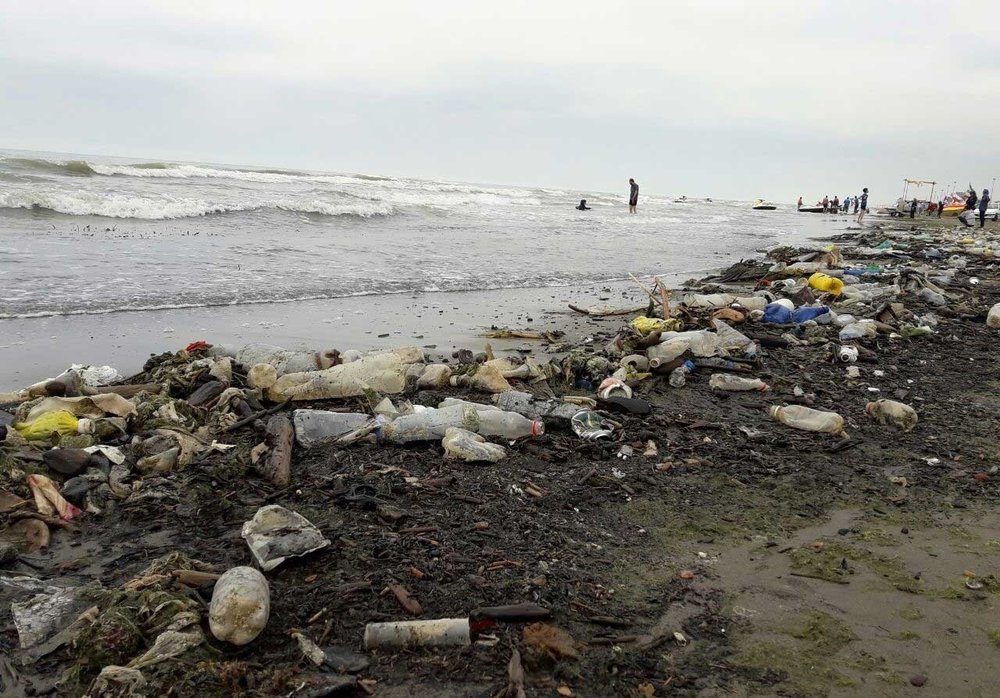Waste management has come to a head

TEHRAN — The issue of waste management in Iran has reached a critical stage and actions have to be taken in no time.
According to Tehran city councilor, Mahmoud Mirlouhi, some 9,500 tons of waste is being produced daily in the capital and despite the fact that there are regulations designed to govern waste management, the sector still suffers from shortcomings in waste minimization.
The councilor further regretted that not implementing waste segregation at source results in losing 2,500 tons of recyclable waste and lack of effective and economical mechanisms in waste sorting is what holding us back.
Waste segregation at source [meaning where the garbage originates is where waste segregation should take place like in residences, offices, commercial establishments, etc.] is indeed a serious problem and the crux of the matter is that lack of citizens cooperation as well as limited resources at the municipality to both provide the citizens with proper guidelines concerning waste sorting, and install litter bins for waste segregation in all neighborhoods are what impeding the proper waste segregation in the country to some extent.
Waste disposal causes long-term effects on the environment and public health. In Iran there is no management after waste disposal in landfills, which are covered and abandoned.
Lack of public education both in reducing waste production and waste separation, increase in the use of plastic bags and lack of regulations restricting their use, informal landfills, lack of resources and finance to set up waste management projects such as modern disposal solutions namely digesters, incinerators, biogas and combined methods in municipalities are hindering proper and effective waste management.
Lagging behind the world
As per a report published by United Nations Industrial Development Organization (UNIDO) in October 2016, waste generation per capita in Iran’s urban areas is about 658 grams per day while Iranian waste generation per capita in rural areas is about 220-340 grams per day. Average Iranian waste generation per capita amounts to some 240 kilograms per year.
In Tehran alone waste generation per capita is estimated at 750-800 grams per day and each Tehrani citizen generates about 270-450 kilograms of waste per years.
Out of 20 million tons of waste being produced annually in Iran only 3.2 million tons will be recycled and the rest end up in landfills which lead to the production of some 10 million cubic meters of leachates.
With 32 million tons of waste per year Germany, with a population standing at 82 million, produces 1.5 times more waste than Iran, however, it recycles almost half the amount.
While Switzerland’s population is about 8 million it produces 3 times more waste than Iran but again recycles more than half of it.
Iran waste production is on average half the developed countries, but unfortunately only 7 percent of the waste is separated at the source, 13 percent is recycled and only 2.5 percent of them end up in formal or sanitary landfills.
Sanitary landfills are sites where waste is isolated from the environment until it is safe. It is considered when it has completely degraded biologically, chemically and physically.
Sadly some 77.5 percent of the waste will be burnt or buried in informal landfills located in the countryside or deserts near cities.
Coastal cities are also in dire straits. 5 percent of the total waste in Iran is produced in northern coastal cities and the daily waste generation per capita is 800 grams.
In coastal cities, formal waste disposal accounts for only 3% of all waste disposal; in these areas there is a lack of suitable locations for landfills and urban areas are jammed between the coastline and mountains.
There are 42 informal landfills (3,000,000 m2) located in forest lands and more than 6,000 tons of waste are dumped in these landfills every day.
Things are not in place
Municipal waste collecting in Iran is generally good. Municipalities have invested heavily on standardized trash-bins and mechanized collection. In Iran, more than 90% of municipal waste is collected by municipal waste management systems.
In recent years various new projects such as incinerators and digesters have commenced operation.
Nonetheless, lack of public education both in reducing waste production and waste separation, increase in the use of plastic bags and lack of regulations restricting their use, informal landfills, lack of resources and finance to set up waste management projects such as modern disposal solutions namely digesters, incinerators, biogas and combined methods in municipalities are hindering proper and effective waste management.
Air pollution, water shortage and sand and dust storm are throwing our lives out of balance but they are also partly blamed on nature (although human beings are fully responsible for messing up with it).
Nevertheless, no one can blame nature for being filled with trash and not being able to cope with it. It is all on us.
MQ/MG
